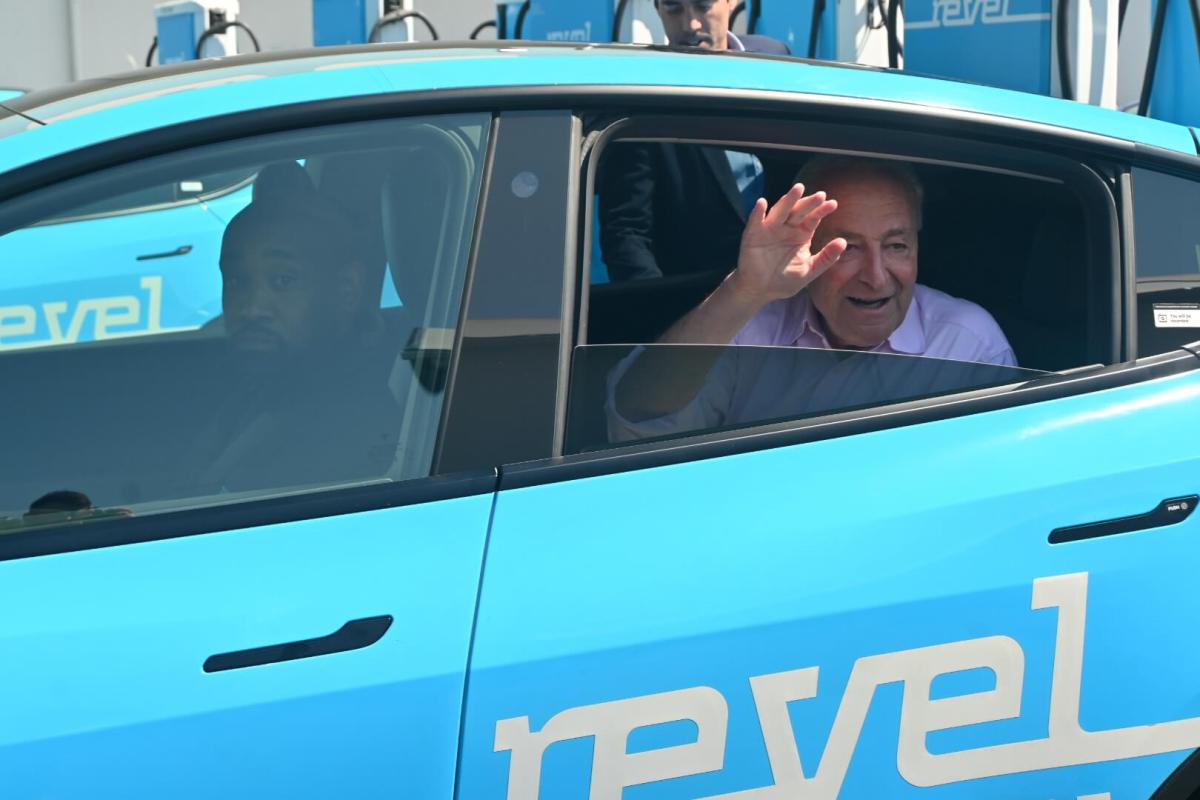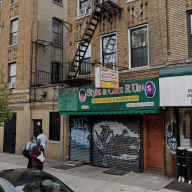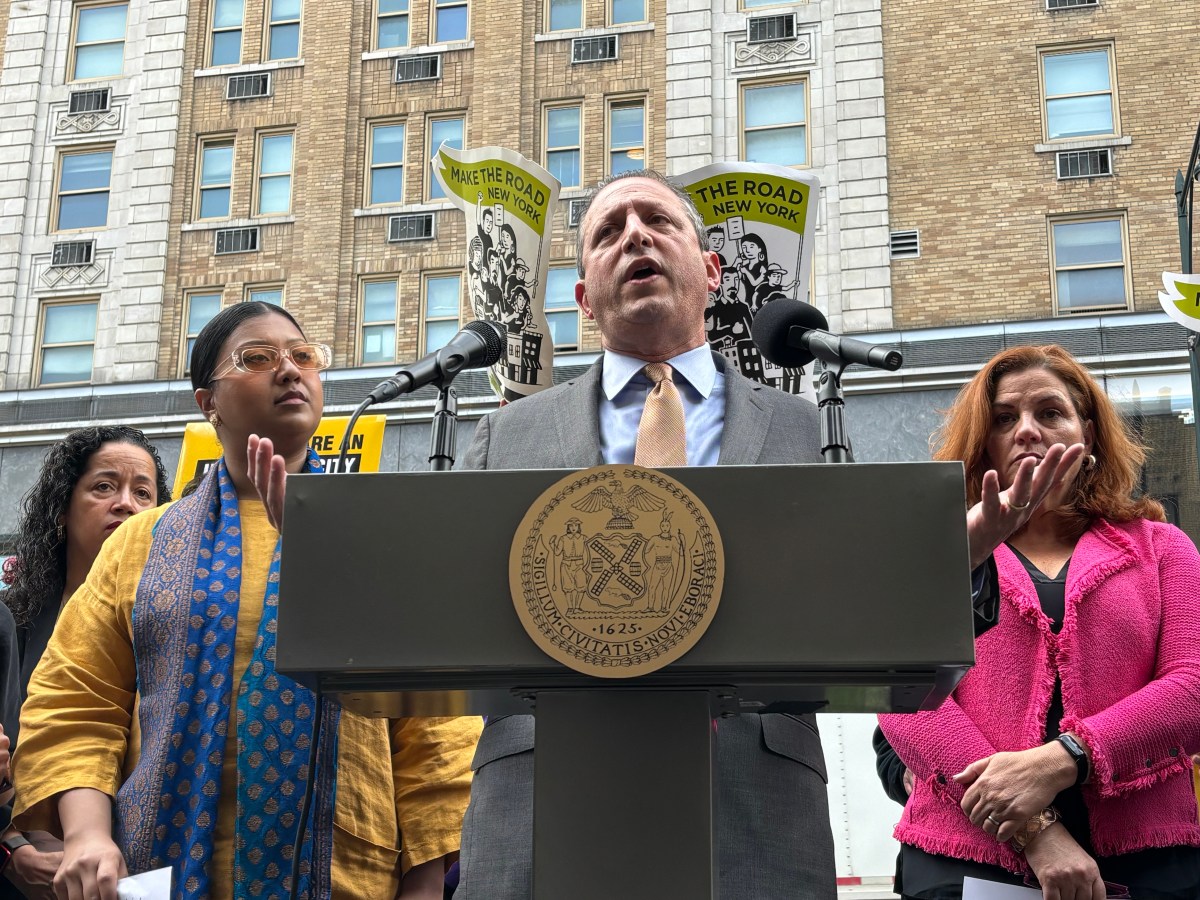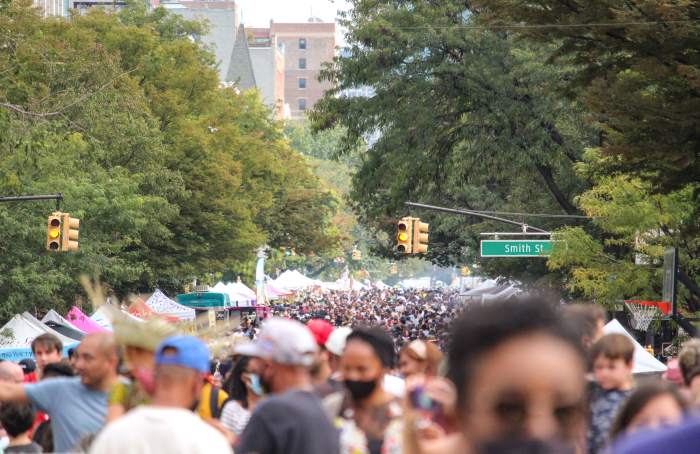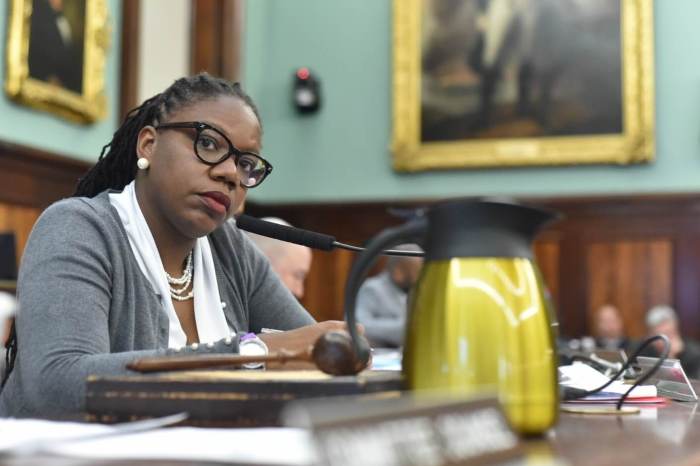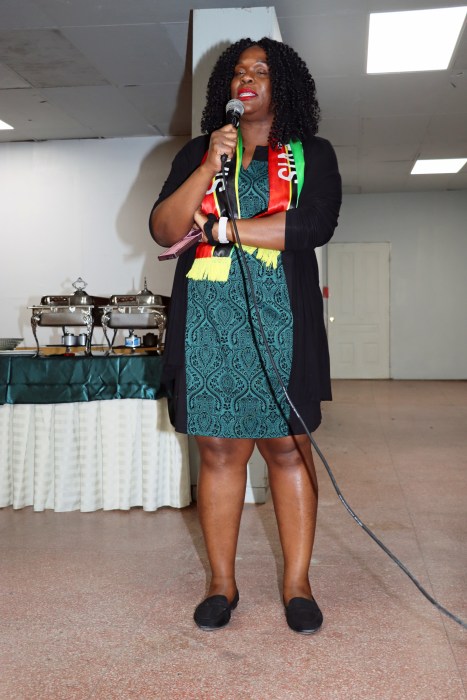Brooklyn-based micro-mobility and infrastructure company Revel celebrated its one millionth electric ride-hailing trip Monday, and the lucky passenger was a familiar face.
Senate Majority Leader Chuck Schumer hailed a ride at Revel’s flagship public fast charging superhub in Bedford-Stuyvesant to mark the upcoming anniversary of the passage of the Inflation Reduction Act — funding from which has helped accelerate the build out of Revel’s public EV fast charging network and zero-emission fleet.
“Revel is on a new and exciting mission to build electric vehicle charging infrastructure throughout New York City and other American cities, so cars — whether they be cars like Revel’s, other rideshare vehicles, or privately owned cars — can have easy access to efficient charging,” said Schumer.
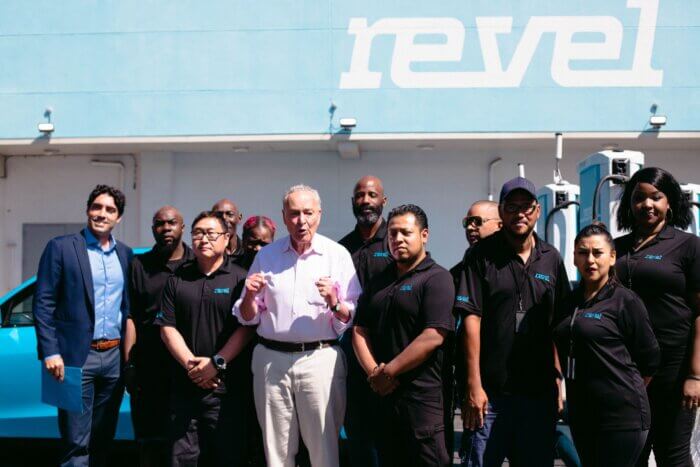
“The Infrastructure Investment and Jobs Act included $2.5 billion to help pay for EV charging infrastructure, and developers like Revel can utilize these funds. We also extended the $7,500 tax credit in the IRA to encourage the adoption of more electric vehicles to lessen carbon emissions, and to pave the way for a cleaner future. I’m excited to have taken the 1 millionth ride in Revel’s all-electric, employee-operated, rideshare fleet and I’m proud to support their mission to accelerate EV adoption in our cities,” he added.
The company estimates its 1 million electric rides have offset roughly 1,844 metric tons of vehicle-based carbon emissions in New York City. A 2019 report found that the city’s fleet of licensed for-hire vehicles — including taxis and vehicles operated by companies like Uber and Lyft — pumped out more than 1.6 million metric tons of greenhouses gases per year. As of January 2019, app-based for-hire vehicles made up the bulk of the city’s for-hire fleet — of 135,398 for-hire vehicles driving the city’s streets that year, more than 88,000 were associated with ride-hailing apps.
Earlier this year, Mayor Eric Adams announced that all Uber and Lyft’s vehicle fleets would have to go all-electric by 2030 — an initiative that was embraced by both companies.
In April, Revel opened its latest EV charging station in south Williamsburg, a “superhub” which includes 15 public EV charging stalls capable of charging speeds of up to 150 kilowatt-hours.
The station, like the original flagship in Bed-Stuy, is open to the public 24/7, with no entry fee needed, and is capable of charging any brand of EV.
The south Williamsburg charging superhub is the first of Revel’s new facilities to be completed, with three more on the way: a 60-stall charging hub in Queens; a 30-stall hub in the south Bronx; and a 10-stall site in Lower Manhattan.
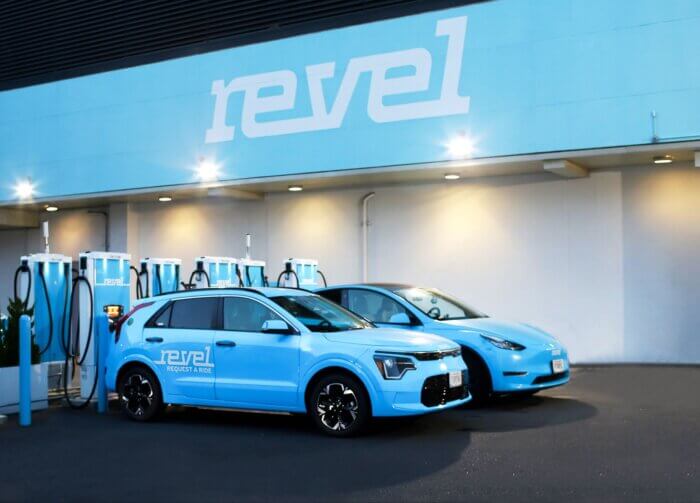
Initially known for their for-hire electric mopeds, Revel currently has a fleet of about 300 active electric vehicles — including Tesla Model Ys and Model 3s and Kia Niro EVs — delivering rides in all five boroughs, parts of northern New Jersey, and to-and-from the three major NYC airports.
“As a Brooklyn-born company, we were honored to have another native of the borough, Majority Leader Schumer, take our one millionth zero-emission EV ride and show how electrification is taking hold in New York City,” said Revel CEO Frank Reig. “Thanks to the historic Inflation Reduction Act led by Senator Schumer and the Biden Administration, Revel is able to help New York and more dense US cities access EVs faster, lowering transportation emissions and improving local air quality.”


